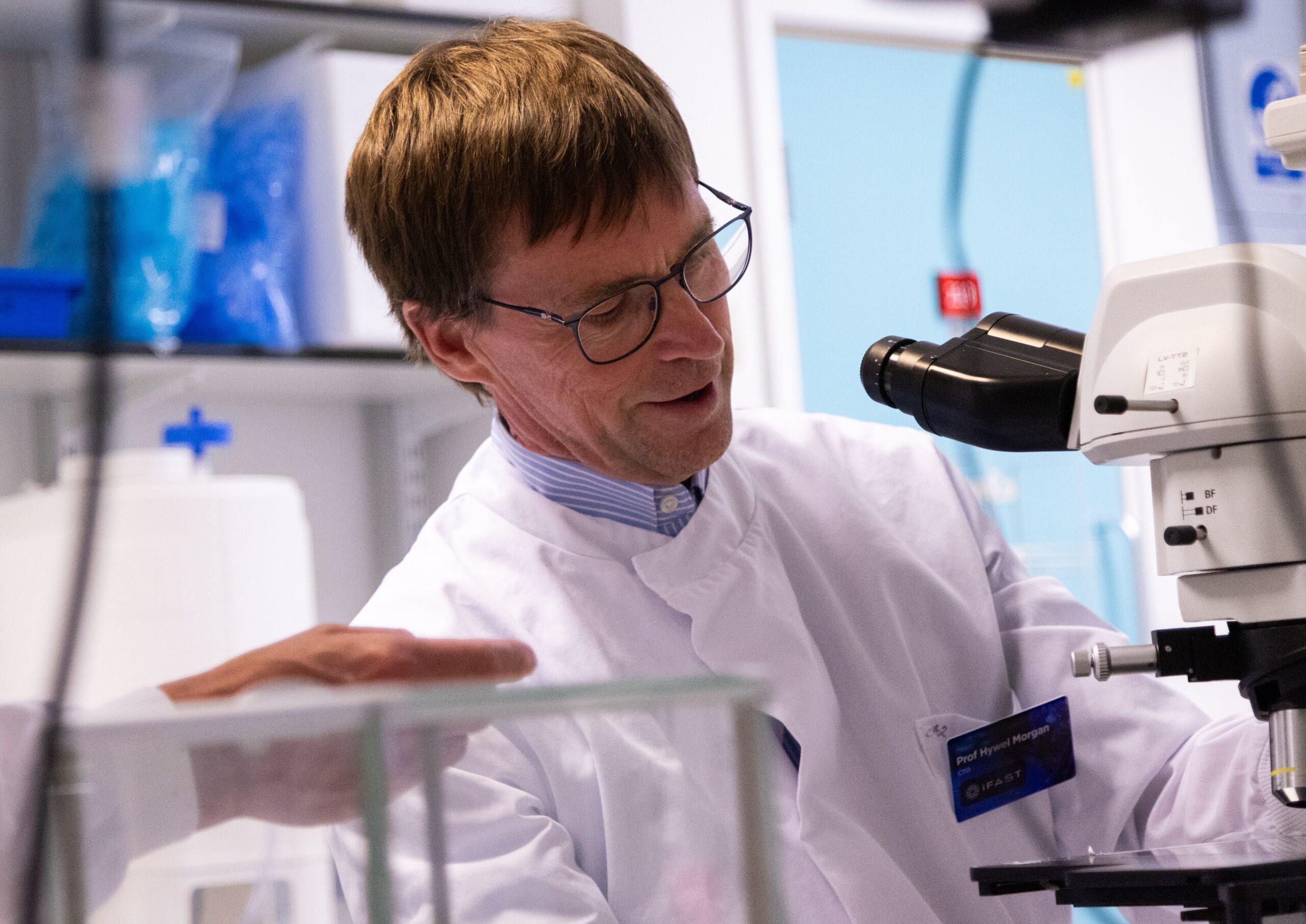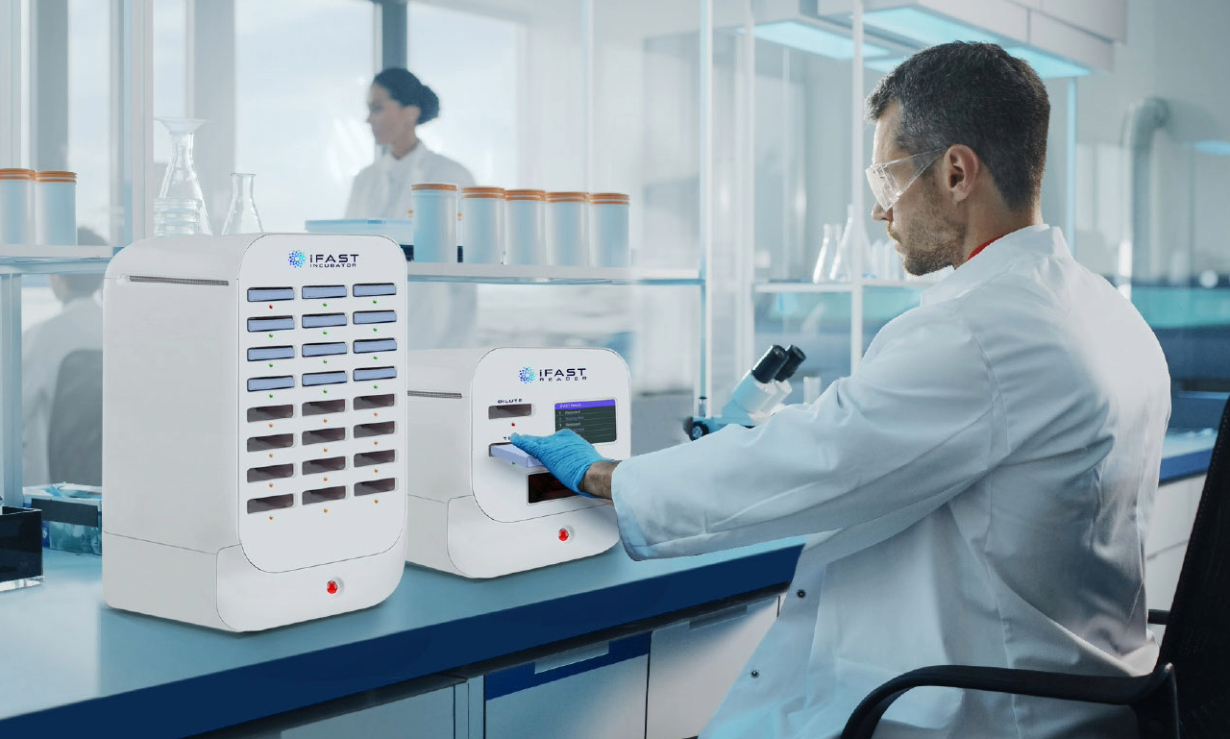iFAST is a rapid-analysis tool developed by Southampton researchers which can quickly identify a patient’s likely response to antibiotic treatment. This fast and effective device will be key in combating the global threat of antimicrobial resistance (AMR).
Developed by a team led by engineers Dr Daniel Spencer and Professor Hywel Morgan, iFAST’s Antimicrobial Susceptibility Testing (AST) process significantly reduces testing time, finding the best treatment sooner. The current gold standard for AST involves culturing bacterial colonies from patient samples and subjecting them to tests with different drugs, a process taking 48-72 hours. This means the patient often doesn’t get the right treatment quickly enough and can also mean the wrong antibiotic is prescribed, contributing to AMR.
However, iFAST’s patented process eliminates the need for bacterial culture and accurately measures the response of a small number of bacteria. As a result, testing time is drastically reduced to just four hours, meaning the right drug can be prescribed quickly, before the infection can develop further.
iFAST’s cutting-edge technology holds the potential to revolutionise the $4 billion AST market and a spin-out company has been established to explore wider applications and scale-up delivery.
Rapid AST results could be life-saving for patients with severe infections like sepsis, where delays in treatment can increase mortality rates. Studies indicate that every hour of delay in sepsis treatment raises the patient’s risk of death by 5%. By shortening the waiting time for the right treatment by over 40 hours, iFAST’s technology can significantly improve patient survival rates.
“Informed prescribing is the goal, so you can actually give the correct antibiotic for the correct bacteria, and ensure the bacteria are not resistant to that antibiotic. What it means for patients is that they get the right antibiotics earlier. This test takes it down from a few days to a few hours.”
Hywel Morgan MBE
Professor of Bioelectronics

